Showing all 12 results
-
Sale!
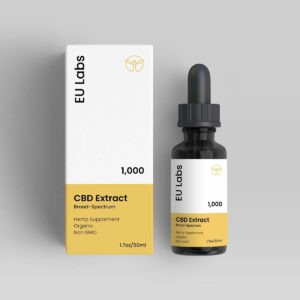
1000mg Broad Spectrum 50ml/1.7oz, c02 Extracted CBD Oil
Original price was: $89.95.$44.98Current price is: $44.98. Select options This product has multiple variants. The options may be chosen on the product page -
Sale!
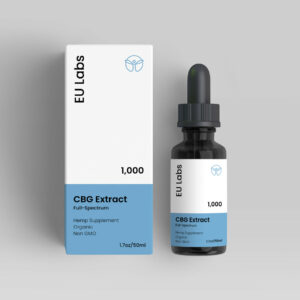
1000mg Cannabigerol (CBG) 50ml/1.7oz, c02 extracted CBG Oil
Original price was: $89.95.$44.98Current price is: $44.98. Select options This product has multiple variants. The options may be chosen on the product page -
Sale!
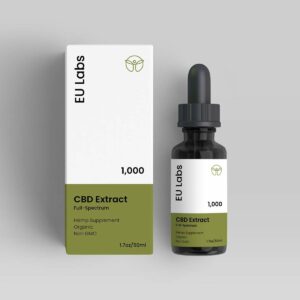
1000mg Full Spectrum 50ml/1.7oz, c02 Extracted CBD Oil
Original price was: $89.95.$44.98Current price is: $44.98. Select options This product has multiple variants. The options may be chosen on the product page -
Sale!
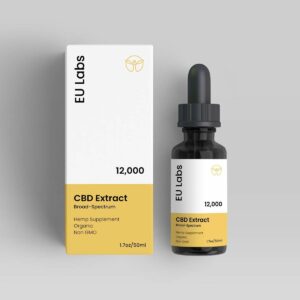
12,000mg Broad Spectrum 50ml/1.7oz, c02 Extracted CBD Oil
Original price was: $585.00.$292.50Current price is: $292.50. Select options This product has multiple variants. The options may be chosen on the product page -
Sale!
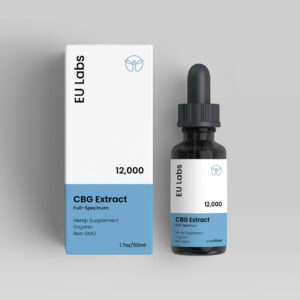
12,000mg Cannabigerol (CBG) 50ml/1.7oz, c02 Extracted CBG Oil
Original price was: $585.00.$292.50Current price is: $292.50. Select options This product has multiple variants. The options may be chosen on the product page -
Sale!

12,000mg Full Spectrum 50ml/1.7oz, c02 Extracted CBD Oil
Original price was: $585.00.$292.50Current price is: $292.50. Select options This product has multiple variants. The options may be chosen on the product page -
Sale!
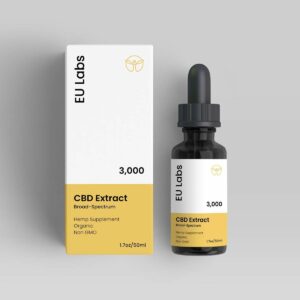
3000mg Broad Spectrum 50ml/1.7oz, c02 Extracted CBD Oil
Original price was: $220.00.$110.00Current price is: $110.00. Select options This product has multiple variants. The options may be chosen on the product page -
Sale!
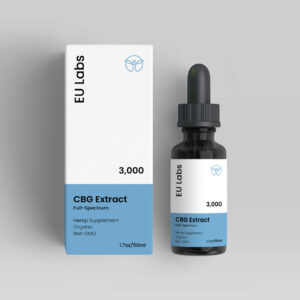
3000mg Cannabigerol (CBG) 50ml/1.7oz, c02 extracted CBG Oil
Original price was: $220.00.$110.00Current price is: $110.00. Select options This product has multiple variants. The options may be chosen on the product page -
Sale!
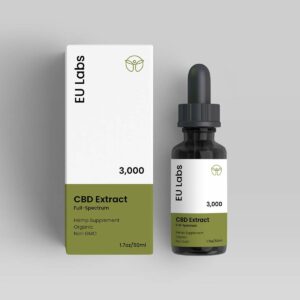
3000mg Full Spectrum 50ml/1.7oz, c02 Extracted CBD Oil
Original price was: $220.00.$110.00Current price is: $110.00. Select options This product has multiple variants. The options may be chosen on the product page -
Sale!
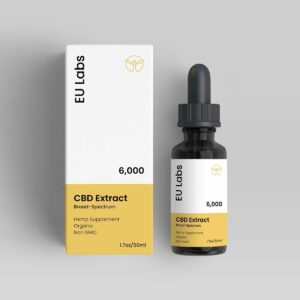
6000mg Broad Spectrum 50ml/1.7oz, c02 Extracted CBD Oil
Original price was: $390.00.$195.00Current price is: $195.00. Select options This product has multiple variants. The options may be chosen on the product page -
Sale!
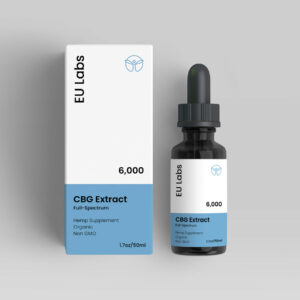
6000mg Cannabigerol (CBG) 50ml/1.7oz, c02 Extracted CBG Oil
Original price was: $390.00.$195.00Current price is: $195.00. Select options This product has multiple variants. The options may be chosen on the product page -
Sale!
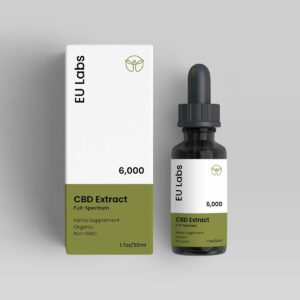
6000mg Full Spectrum 50ml/1.7oz, c02 Extracted CBD Oil
Original price was: $390.00.$190.00Current price is: $190.00. Select options This product has multiple variants. The options may be chosen on the product page
CBD Australia: The Little Health Company – Guide to Buy CBD Oil
CBD, or cannabidiol, has been making waves worldwide with its wide-ranging health benefits. With the rise of CBD in Australia, a growing number of Australians are exploring this versatile plant extract’s potential.
As the world of CBD Australia expands, it’s important to know the ins and outs of this growing market.
Understanding Hemp Products Australia
Cannabidiol, commonly known as CBD, is derived from the cannabis plant and does not possess psychoactive qualities. This is the primary reason for the rising demand for CBD in Australia.
Buying CBD Online in Australia
In this digital age, buying products is becoming the norm. The same applies to buying CBD. More and more Australians are choosing to buy hemp based oils online for the convenience, variety of options, and the ability to research products before purchase.
It’s important to choose reputable stores when buying hemp oil. This is key to ensuring that the CBD you are accessing is of high quality and safe for use.
The Expanding World of CBD Products Australia – Buy CBD Oil Online
CBD products Australia encompass a wide array of options. Whether you prefer oils, capsules, topicals, or edibles, the Australian CBD market has something for everyone.
- CBD Tinctures: stand out as perhaps the most favored type of CBD. Their user-friendly nature, accuracy in dosage, and rapid absorption when positioned beneath the tongue make them a top choice.
- CBD Capsules: If you’re seeking a straightforward method for consuming CBD, capsules offer an excellent solution, containing CBD as well.
- CBD Topicals: Topicals, such as creams, lotions, and balms, are used for localized relief. They’re often chosen for managing skin conditions or joint and muscle discomfort.
- CBD Edibles: From gummies to chocolates to beverages, CBD edibles are a discreet way to enjoy the benefits of CBD.
Always discuss with a professional the best CBD Brands, What the oil contains and how much CBD Oil to take.
Hemp Seed Oil vs. CBD: The Difference
Although derived from the same plant, Cannabis Sativa, hemp seed oil and CBD oil are not the same. Hemp seed oil is made from the seeds of the hemp plant and does not contain CBD or other cannabinoids. On the other hand, CBD oil is derived from the plant’s stalks, leaves, and flowers, which contain higher concentrations of CBD.
CBD and Hemp: A Symbiotic Relationship
When discussing CBD, it’s essential to understand the relationship between CBD and hemp. The Cannabis Sativa plant comprises different varieties, and hemp is one of them. This variety is particularly rich in CBD and low in THC, making it the go-to source for most CBD products.
Medicinal Cannabis and CBD: Two Sides of the Same Coin
While CBD is gaining popularity, it’s worth noting that it’s just one active ingredient of over a hundred in the cannabis plant, also known as medicinal cannabis. The combination of these cannabinoids can have a synergistic effect, often referred to as the “entourage effect,” which may enhance the therapeutic potential of cannabis.
A Guide to Buy CBD Oil in Australia
If you’re new to CBD, it might be a bit overwhelming to choose a product that suits your needs. To simplify the process, here’s a brief guide to buy CBD oil in Australia.
Firstly, look for products available without a prescription, as they comply with Australian regulations. Also, consider the type of CBD oil you’re buying. Spectrum CBD oil, for instance, contains all of the natural compounds found in the hemp plant, offering a full range of potential benefits.
To take CBD oils, simply place a few drops under your tongue and hold for a minute before swallowing. This allows for maximum absorption. As a rule of thumb, start with a low dose and gradually increase the amount until you find the level that works best for you.
The Effects of CBD on the Endocannabinoid System
CBD may interact with our bodies through the endocannabinoid system (ECS), a complex cell-signaling system that helps maintain homeostasis. By influencing the ECS, CBD may help treat a variety of health conditions, from anxiety and depression to chronic pain and inflammation.
The Growing Interest in CBD for Pets
As more research is conducted on CBD’s potential health benefits, its use is not limited to humans. Many pet owners now use CBD for pets, particularly dogs and cats, to help manage a variety of health issues, such as arthritis, seizures, anxiety, and even certain skin conditions.
The Renaissance of CBD – CBD Oil Australia
The medicinal prowess of CBD has been unfolding over centuries. Tracing back to its roots, CBD’s journey from an obscure plant compound to a recognized natural health promoter is truly captivating. This article illuminates the impressive odyssey of CBD, from its inception in early civilizations to its widespread acceptance in the medicinal hemp industry today.
Cannabis: A Therapeutic Companion Since Ancient Times
Centuries before we purchase CBD off the shelves, the cannabis plant had already secured a prominent place in human life. Its first known use dates back to 5000 years ago in Asia, where cannabis was acknowledged for its therapeutic benefits. Both in China and India, this miraculous plant was used to help alleviate a wide range of health issues, from pain and inflammation to mental health disorders. The plant’s psychoactive effects were also well-known and often employed in spiritual and ceremonial rites. However, the discovery of CBD, a non-psychoactive compound, would later shift the perception and use of cannabis dramatically.
The Discovery of Cannabinoids: Enter CBD
Fast-forwarding to the 19th century, Western medicine began exploring cannabis’s potential through more controlled scientific studies. But the monumental moment came in 1963 when Dr. Raphael Mechoulam, an Israeli organic chemist, successfully isolated and synthesized CBD. This discovery was a landmark event. For the first time, a cannabis compound offered therapeutic potential without psychoactive effects, separating medicinal use from recreational use.
The Advent of Cannabidiol
Recognizing CBD’s therapeutic benefits led to the development of different methods to take CBD. The 1970s witnessed the first attempts at CBD production when scientists discovered that fatty substances improved the body’s absorption of cannabinoids. However, legal restrictions and societal prejudice around cannabis delayed the growth of CBD for several years.
A significant shift occurred in the early 2000s. A few anecdotal reports about CBD’s positive effects, especially for children with severe epilepsy, caught public attention. The case of Charlotte Figi, whose epileptic seizures were drastically reduced after taking CBD, paved the way for CBD’s mainstream acceptance, leading to a surge in research and increased demand for CBD in Australia.
The Contemporary Era of CBD: A Blossoming Industry
Over the past few years, CBD has risen in popularity. As we continue to uncover the amount of CBD needed to offer potential benefits, the market keeps expanding. Today, CBD can be found in an array of products, from tinctures and capsules to skincare items and even pet care products.
The path to acceptance was far from smooth, with legal barriers, social stigma, and scientific obstacles creating significant challenges. Despite this, the persistence of researchers and powerful testimonials from individuals who benefited from the use of CBD have charted a course for CBD.
The legal climate, especially the passing of the 2018 Farm Bill in the United States, has been instrumental. This legislation, which legalized hemp-derived CBD, paved the way for an increase in Cannabinoid availability and a broader acceptance of CBD’s therapeutic potential.
Decoding CBD Oil and Hemp: A Look at the Cannabinoid Content
Understanding the difference between CBD oil and hemp oil is primarily in the cannabinoid content. As we’ve mentioned, hemp oil, derived from hemp seeds, contains no CBD or THC. Conversely, CBD oil, derived from the hemp plant’s leaves, flowers, and stalks, is rich in CBD and often contains traces of other cannabinoids, offering an array of potential benefits.
Cannabis Oil vs. CBD Oil
Another common misconception is conflating cannabis oil and CBD oil. While CBD oil is high in CBD and low in THC, cannabis oil contains significant amounts of both compounds. This makes it a potent medicinal cannabis product. It’s crucial to understand these differences when deciding on the right product for your needs.
Choosing Quality CBD Oil Products
With the rising demand for CBD, there are numerous products available for purchase, but not all are created equal. When choosing CBD oil products, consider the following factors:
- Third-Party Testing: This ensures that the product’s cannabinoid content aligns with what’s on the label and it’s free of harmful contaminants.
- Cost per Milligram: A simple calculator can help you determine the cost per milligram of CBD, which can vary widely across products. This will help you find a quality product that also fits your budget.
- Full Spectrum or Isolate: While CBD isolate contains only CBD, an organic full spectrum CBD oil includes all the cannabinoids, terpenes, and flavonoids found in the hemp plant, which work together to amplify CBD’s benefits.
How to Take CBD Oil
To absorb CBD oil effectively, place the oil under your tongue using a dropper and wait for about 60 seconds before swallowing. This method, known as sublingual administration, allows the CBD to be absorbed directly into your bloodstream, maximizing its potential effects.
The Nutritional Benefits of CBD
CBD oil isn’t just for its potential therapeutic benefits. Rich in essential fatty acids like Omega 3 and Omega 6, CBD oil may also contribute to a balanced diet. Plus, full-spectrum CBD oil contains other beneficial compounds like terpenes and flavonoids that offer their own health benefits.
Looking Forward
The story of CBD is still being written. Continuous research is being conducted to determine the optimal mg of CBD for various uses. With increasing evidence that CBD can help with a range of conditions and the growing acceptance of its therapeutic potential even in trace amounts, the future of CBD looks promising.
Final Thoughts on CBD Australia
With the increasing interest in natural treatments, it’s crucial to be well-informed about the products and their legality. By doing so, you can safely navigate the market, whether you choose to buy from a pharmacy in-store or from online retailers.
As the range of CBD products Australia continues to grow, there’s never been a better time to explore the potential benefits of CBD. From supporting general wellness to managing specific health conditions, CBD holds promising potential for Australians and indeed, for people around the globe.
Remember, while CBD is considered safe, it’s always a good idea to consult with a healthcare provider before starting any new supplement regimen. After all, when it comes to your health, making informed decisions is key. With that in mind, welcome to the vibrant world of CBD Australia.
FAQS
What distinguishes full spectrum CBD from other types of CBD products, and how do the levels of THC factor in?
Full spectrum CBD is a type of CBD product that contains all the compounds naturally occurring in the cannabis plant, including cannabinoids, terpenes, and flavonoids. This contrasts with products like CBD isolate, which only contain CBD. What makes full spectrum unique is the presence of THC, albeit at very low levels. By law, these products can contain no more than 0.3% THC, a quantity insufficient to produce any psychoactive effects but enough to contribute to what’s called the “entourage effect.”
How does hemp differ from CBD, considering CBD oil is usually derived from the hemp plant?
It’s rich in essential fatty acids and is often used in skincare products for its moisturizing benefits. In contrast, CBD oil is typically derived from the hemp plant’s flowers, leaves, and stalks, all of which contain abundant levels of CBD. This non-intoxicating compound has been extensively researched for its possible health advantages.
What should one know about the THC content Cannabinoid based tinctures?
Full spectrum CBD and hemp oil have different levels of THC due to their unique extraction processes. This type of CBD contains all of the plant’s naturally occurring compounds, including THC. However, the levels of THC in full spectrum CBD are extremely low (less than 0.3%), which is not enough to cause any psychoactive effects. On the other hand, hemp derived solely from the seeds of the hemp plant, does not contain any THC or CBD. It’s essential for consumers to understand these differences, especially if they undergo drug testing or are sensitive to THC. Always check product labels to verify the THC and CBD content before purchase.
To View the Little Health Company store click here
Disclaimer: Please consult with a healthcare provider before using CBD products, especially if you are pregnant, nursing, have a medical condition or are taking any medication.